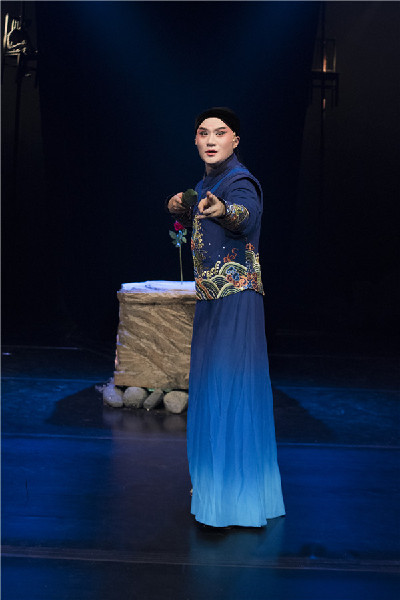 |
|
Zhang Jun keeps pushing the boundaries of Kunqu Opera in projects like I, Hamlet (above) and Blossoms on a Spring Moonlit Night. Photo provided to China Daily] |
"A stable life can make you lazy sometimes. It also constrains your imagination. I want to experiment with my 'crazy' ideas," says Zhang Jun.
He once founded a hip-hop group and worked with pop singers, such as Chinese-American singer-songwriter Leehom Wong, to expand the dimensions of Kunqu Opera.
In 2010, Zhang Jun collaborated with Oscar-winning composer Tan Dun, staging Peony Pavilion, one of the most famous Kunqu Opera pieces written by Ming Dynasty (1368-1644) playwright Tang Xianzu.
Breaking the convention of performing inside theaters, he staged the production in a landscaped garden in Shanghai.
Zhang Jun has presented Peony Pavilion in different countries, including France, Italy and the United States, in the past few years.
He has also performed a major role in Chinese composer Tan Dun's opera Marco Polo that was nominated for a Grammy Award in 2010.
Speaking of Zhang Jun's performance, Tan once said: "He is neither here to perform Kunqu Opera nor to learn from Western theater. He is here to inspire a Western audience and be inspired."
Last year, in his one-man Kunqu production, I, Hamlet, Zhang Jun delivered the famous line "to be or not to be" in English while mixing the words with traditional Kunqu singing. In his play, he adapted the Kunqu style of monologue and played four roles: Hamlet, Ophelia, the ghost of Hamlet's father and the gravedigger.
"Zhang Jun introduced a new Hamlet to me. I am surprised to see how a classic Western story is told through Chinese Kunqu Opera," says John Howkins, a visiting professor at the Shanghai Theater Academy.